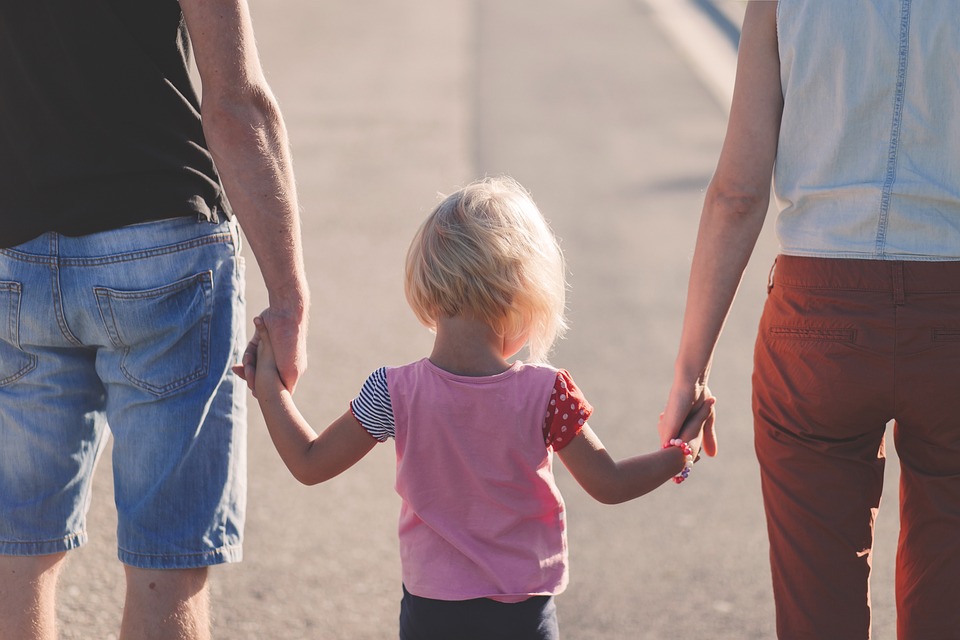
Last week, I offered up my take on Demi Moore’s recent comments that she is proud of her divorce. I’ll add that I am really glad for her. I’m glad that she feels she survived her divorce and that she and Bruce Willis didn’t fight. Mostly, though, I am happy, that at least from her perspective, her children have grown into happy, high-functioning adults, despite the divorce.
Will the kids be OK? Depends who you ask
The debate rages on, and plenty of research has been done to support both sides of the debate. Psychologist and researcher Judith Wallerstein’s landmark 25-year study of children of divorce concluded that:
“The children of divorce tended to do well if mothers and fathers, regardless of remarriage, resumed parenting roles, putting differences aside, and allowing the children continuing relationships with both parents. Only a few children had these advantages.”
Other researchers have had more discouraging news. In 2004, researcher Elizabeth Marquardt, a scholar with the Institute for American Values, a think tank on family issues, conducted a study that indicates children often grow up torn between two households.
Marquardt is among those who believe that even under the best of circumstances, children often suffer emotional scars that last a lifetime. She also believes that they have trouble with their own intimate relationships as adults. Marquardt has claimed to hate the term “the good divorce.” Her belief is that just because parents don’t continue to argue doesn’t mean the kids do well. The good divorce, Marquardt says, is an “adult-centered vision” and that “No matter what the level of conflict, a divided family often requires children to confront a whole set of challenges that children in married-parent, intact families do not have to face.”
My take on kids and divorce
Parents think divorce will be easier than it is. What I find too often is that people wrongly assume that everything will work out automatically when they get divorced. Divorce or breakup of the family is not the end of the world by any means, but adults usually overestimate the cooperativeness of their ex and the ease of the transition for their children. They do not fully take into account the many ways their lives and the lives of their children will be changed emotionally, financially, and relationally.
We stigmatize children of divorce (and the families of divorce) in a negative light in our society due to trying to prevent divorce (well, because it’s one of the few family situations that is preventable). I believe wholeheartedly that children will be okay. Yes, they will have some extra work to do and additional challenges.
But many children who come from many other kinds of families have extra work and additional challenges too. Children who come from military families deal with absences and challenges in their families. In families where there is a parent with a chronic illness or a special needs sibling, children have to learn additional skills for managing this kind of family. The same goes for a child with one parent that travels a lot or parent who holds down two or three jobs or their whole family has to move every other year due to work or any of a number of other kinds of challenges that families face everyday in our world.
My point is that it is time we stopped acting like children in divorced families are the only ones that ever have to do extra work, have additional challenges, or struggle in their families.
Even if only one parent is okay, the children can still be okay. A lot of the work that I do is with the one parent who wants to be okay. Who struggles to deal with a parent who is not. The belief that both parents have to be okay for the kids to be good is the easiest and its the best. There is no doubt, but often in divorce, sadly in divorce, it may not be not attainable. One parent cannot make another parent get along and work with them. Yes, it does make it harder, but each parent is only in control of themselves.
One parent can’t be responsible for the other parent, so that one parent has to focus on what they can do by themselves. They can focus on modeling resilience, show the children how to move through difficult times and ask for help. If as parents, that one parent can take care of themselves and find support for themselves as a single parent. And if that one parent can forgive their ex and let their children love him or her and all the new people that come into their kids’ lives. If they can do all that, their kids will adjust much better to the divorce. Children take their cues from us. If that one parent is okay and can move forward with forgiveness and hope, children have at least one model to also do that.
One parent can also be enough. Because one parent who can do that is better than neither doing it. And all children ever needed in order to be okay is one good parent or person to love them. Of course, it would be great if all children everywhere had this. But in the meantime, I’m going with the one good parent every time. I’ll just keep helping them. They are enough.
After all, the world is full of good people who were raised by one good parent.
I’d love to hear your thoughts. Please share in the comments below.
